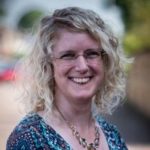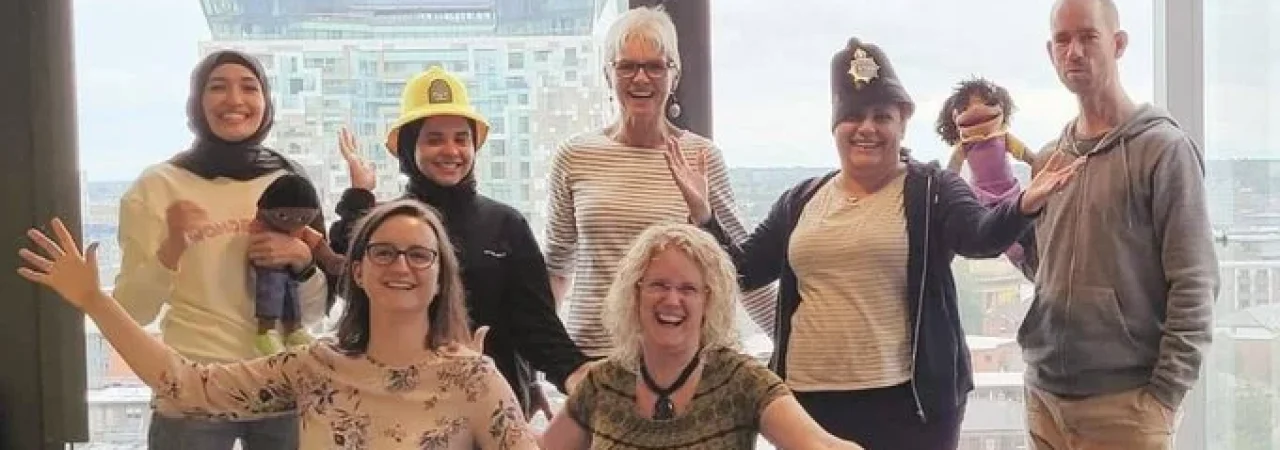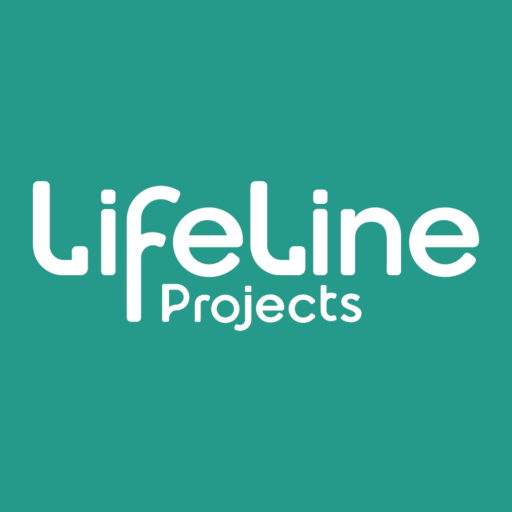This month, we’d like to introduce Dr Anne Smith, Author and Lead Trainer of the Creative English programme and part of our FaithAction team. Anne has worked with LifeLine on various community projects since 2006, including developing the Young Stars and Creative English programme, which use drama to create a sense of belonging and to create further opportunities. Anne was previously awarded a PhD in 2013 from Queen Mary University of London for seven years of research with refugees and migrants.
You can find out more about Anne and her work by reading some of her blogs for FaithAction.
Where were you born and raised?

I was born and raised by the sea in Bournemouth in Dorset. I came from quite a small family; just me, my sister, and my mum and dad.
What did your family teach you?

To be helpful to people. To treat people fairly and equally. Being fair was always very important to my mum. She always made sure my sister and I were treated exactly the same.
That things should be fair and just is still important to me now.
Did you go to university?

Yes, I did my undergraduate degree at Goldsmiths University of London. I did my MA there as well, and then I went to Queen Mary University of London where I studied for a PhD. My undergraduate degree was in English and Drama. My MA was in Theatre and Education.
What was your first job?

My first ever job was in a hotel in Bournemouth. It was a little one, the type where you had to order a boiled egg 48 hours in advance! I was both a waitress and a chambermaid, serving people from lots of different backgrounds, with their own accents and experiences. It taught me how to meet different people’s needs and that was probably the first time I realised just how hard it can be when you aren’t familiar with the culture and services in a new place—something that the current projects I work on help people with.
How did you start with Lifeline?

I started as a sessional worker as part of a children’s performing arts project on the Fanshawe estate in Dagenham. I’d moved back to London to do my MA. It was a fun project, building people’s confidence through the arts. I ran the drama activities and other members of the team ran dance and music.
What was the Young Stars programme?

That was a project for young people. It incorporated drama, art, and creative writing all in one package. We ended up doing a number of performances and exhibitions written by young people, including one at the Barking Broadway. Some of the participants went on to become mentors to the younger students and even later became staff on the project.
I suppose it was a forerunner of some of the things the SW!TCH programme does now.
And then you also started Creative English. Can you describe it?

Creative English started because the main thing you need to improve your ability to speak and use a new language is confidence. If you aren’t confident, you don’t tend to use the language you’ve learned and you end up forgetting it. Communication doesn’t actually have a lot to do with words—that’s only part of it. Less than 35% of communication is words—the rest is things like body language, intonation, facial expression and the context you are in. If you learn in a way that include those things too, you learn faster and get confident to use the English you’ve learned more quickly.
Creative English uses a lot of improvisation—people act out situations which are useful for everyday life as part of a soap opera-like story. The language we use is more natural and people remember things they know more easily. People often find they know more English than they think! It’s a brilliant way to learn and make friends.
What was your PhD in?

My PhD was in facilitating belonging for refugees and migrants through drama. At the time, I was working for LifeLine as a cover teacher across three boroughs, covering ESOL lessons when the teacher was sick or on holiday. I also was volunteering at a drop-in session run by LifeLine Church. This gave me the opportunity to see there was a common pattern of people being good at reading and writing but not speaking, and how some teachers were better than others at creating a sense of community in their group.
One lady told me how lonely she was and, as I looked round, I suspected most people felt the same—being in the same classroom four days a week with all these people and still not talking to anyone. This sparked the research process trying to define what best practise looked like when confidence and friendships were encouraged at the same time as English language. The Creative English programme was a basically by-product of that process—built around making it easy for anyone to do it, just by following the session plans! LifeLine generously gave me free space to run project workshops as a volunteer that were part of the research.
What did your family teach you?

To be helpful to people. To treat people fairly and equally. Being fair was always very important to my mum. She always made sure my sister and I were treated exactly the same.
For example, she’d always make sure she’d spent the same on both of us at Christmas, calculating it pretty much down to the pennies. That things should be fair and just is still important to me now.
Have you always worked with charities?

I was a teacher at a secondary school for eleven years, where I set up the Drama department in the school. I’ve taught in various contexts—both adults and children.
What gets you out of bed in the morning?

Making a difference to people! I am very lucky to meet amazing people every day—in terms of volunteers, participants in my projects and the staff team at work. They definitely get me out of bed!
How would you describe LifeLine?

It is absolutely solution-focused—it recognises the potential in people and communities and it’s just a great place to work.
What’s the one thing that no one knows about you?

I used to have a qualification in mobile scaffolding tower erection.



